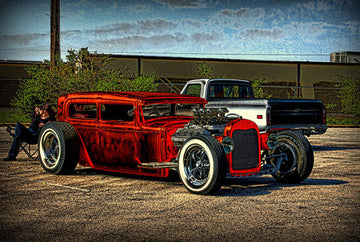Globally, two types of engines are generally found - diesel engines and petrol engines. The classification is done based on the fuel used for the engines, because the construction, functionality and features of the engines vary on the type of fuel to be used. These engines can be found in cars, airplanes and even in commercial generators. Therefore, it would be worthwhile to spare some time and have a look into the reason behind the preference of one type of engine over the other.
Prerequisites
In order to have a deep understanding of the subject matter of this article, having a passion for the stuff under the bonnet would be helpful. But in any case, the material has been represented in such a manner that a person with little or no knowledge about mechanical engineering will also be able to follow; a bit of physics in your middle school or high school will suffice. To start with, let us try to understand the working principle of the two types of engines, so that we can infer the reason behind the popularity of one type over the other.
Working principle of diesel engines
A diesel engine is generally referred to as CI (compression ignition) engine. In a diesel engine, air is compressed by the pistons within a closed chamber by a process called adiabatic compression. Due to severe compression, the temperature of the air rises to very high levels inside the chamber. After achieving sufficient temperature, the fuel, which in this case is diesel, is slowly injected into the chamber in a controlled manner.
When the inflammable fuel comes in contact with the hot air, it starts burning. The gas produced from the combustion pushes the piston downwards which in turn produces the torque required. Due to its constructional features, it has very low leftover fuel and also the excess heat is dissipated easily, making the engine very suitable for prolonged hours of maintenance free operation under heavy loads. Among all the types of Internal Combustion engines, diesel engines have the highest rate of efficiency, sometimes more than 50%.
Working principle of petrol engines
Petrol engines, on the other hand, is an Internal Combustion engine with an entirely different working principle. Inside a petrol engine, fuel and air are mixed in a chamber and compressed gradually. Also, a spark plug is used to provide the necessary ignition point for the mixture, so that the entire process becomes quick and steady. Due to the presence of the spark plug, petrol engines are highly used in cold countries where the ambient temperature is very low and it is very difficult to maintain the temperature of the mixture suitable for combustion only through compression.
Also, the speed of petrol engines is higher than and its parts are lighter that of its diesel counterparts, making it the ideal choice for quick acceleration and high-speed maneuvers. However, the compression ratio of the fuel-air mixture is quite low for a petrol engine and it results in a lower efficiency of petrol engines as compared to diesel engines.
Which is the better choice?
Well, it depends on the nature of use. Experts recommend petrol engines for cases that need very high speed and high acceleration. Also, historically diesel engines are noisier than petrol engines and people associate it with nasty fumes coming out of the exhaust. But the fact is that carbon dioxide emission from petrol engines is higher than that of diesel engines.
Diesel engines are a better choice due to many factors like:
Cost of diesel is lower than that of petrol in most of the countries in the world.
Diesel engines last longer due to rugged build.
Efficiency and maintenance cost is a great deciding factor for the choice to be made.
At low speeds, diesel engines can generate very high power. This is the ideal case for commercial and industrial applications.
Due to all these reasons, it has also been observed that machines using diesel engines get higher resale values. Surveys have proved the fact that used diesel cars and used diesel generators generate more enquiries when put up for reselling. However, it is strongly advised to consult a domain expert to determine which engine to buy for your requirement.
Articles
Why Are Diesel Engines Preferred Over Petrol Engines?





